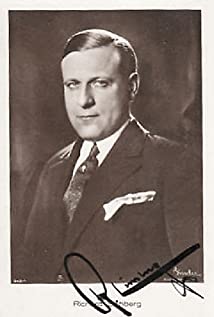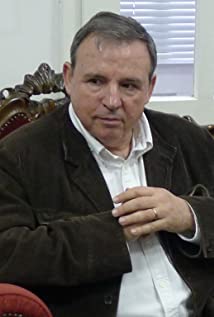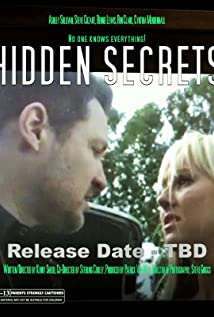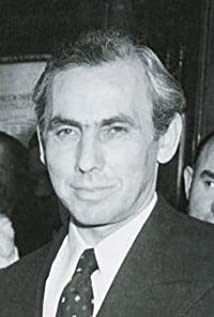
As per our current Database, Richard Eichberg has been died on 8 May, 1953 at Munich, Bavaria, Germany.
When Richard Eichberg die, Richard Eichberg was 65 years old.
| Popular As | Richard Eichberg |
| Occupation | Director |
| Age | 65 years old |
| Zodiac Sign | Scorpio |
| Born | October 27, 1888 (Berlin, Germany) |
| Birthday | October 27 |
| Town/City | Berlin, Germany |
| Nationality | Germany |
Richard Eichberg’s zodiac sign is Scorpio. According to astrologers, Scorpio-born are passionate and assertive people. They are determined and decisive, and will research until they find out the truth. Scorpio is a great leader, always aware of the situation and also features prominently in resourcefulness. Scorpio is a Water sign and lives to experience and express emotions. Although emotions are very important for Scorpio, they manifest them differently than other water signs. In any case, you can be sure that the Scorpio will keep your secrets, whatever they may be.
Richard Eichberg was born in the Year of the Rat. Those born under the Chinese Zodiac sign of the Rat are quick-witted, clever, charming, sharp and funny. They have excellent taste, are a good friend and are generous and loyal to others considered part of its pack. Motivated by money, can be greedy, is ever curious, seeks knowledge and welcomes challenges. Compatible with Dragon or Monkey.

Traversing a consistent middle road between artistry and more prosaic mainstream fare was the German director Richard Eichberg. Though he had enjoyed moderate success as an actor on the stage from 1906, Eichberg soon focused his energies on the burgeoning film industry.
His career as a director/producer commenced properly in 1915 with the setting up (as co-founder) of a production company under his name, the Richard Eichberg-Film GmbH. Skilfully anticipating public tastes for escapist action he went on to specialise in turning out technically proficient, economically budgeted crime thrillers and melodramas (eventually also incorporating comedies and operettas into his repertoire).
He had a special fondness for setting his films in exotic locales. Such material was perfectly suited to starring the athletic actress and dancer Lee Parry (at the time also his first wife). Eichberg directed Parry in her biggest box-office hit, Monna Vanna (1922), one of his more lavish projects.
Having tasted stardom, Parry moved on to greener pastures in 1925 and Eichberg found himself having to scout for new talent.Eichberg's reputation partly rests on bringing to the fore a future Hollywood star in Anna May Wong.
He also discovered other potential leading lights in actresses Franciska Gaal and Mona Maris. With his comedy Die keusche Susanne (1926), he inaugurated the dynamic box-office pairing of Lilian Harvey and Willy Fritsch.
After Harvey was snapped up by Ufa in 1928, Eichberg signed a two-year contract with British International Pictures to make Anglo-German co-productions. These included the lucrative Anna May Wong vehicles Schmutziges Geld (1928) and Großstadtschmetterling (1929), as well as the police thriller Der Greifer (1930) (which helped propel the actor Hans Albers to fame and fortune).
Never in tune with the national socialist regime in Germany Eichberg continued to make pictures elsewhere. During the mid-30's, he worked in France and Bulgaria where he filmed the classic Jules Verne adventure Der Kurier des Zaren (1936) (with charismatic Austrian star Anton Walbrook playing the lead role of Michael Strogoff).
A significant box office triumph (though by no means a universal hit with critics) was Eichberg's remake of Fritz Lang's Indian two-parter The Tiger of Eschnapur (1938) and Das indische Grabmal (1938).
Both featured the exotic dancer La Jana and Eichberg's second wife, an actress named Kitty Jantzen who disappeared into obscurity shortly after release. Thanks to numerous re-runs on television, Eichberg's version is by far the best known.
At the least, it is vastly superior to Lang's kitschy 1958 re-visitation with its doctored 'happy ending' (Lang himself declared this one of his notable failures).By the end of the decade, Eichberg found the situation in Germany increasingly intolerable.
In 1939, he emigrated to the U.S. and was granted American citizenship five years later. For all of his credentials he never managed to find work in Hollywood. In 1942, he was briefly active on Broadway as artistic director and co-financier of Lehar's "The Merry Widow" at Carnegie Hall.
Seven years later he returned to Germany attempting to rekindle his career in familiar fashion with a typically exotic fantasy: Die Reise nach Marrakesch (1949). Despite the lavish production (filmed on location near Casablanca) and fielding a quartet of bankable stars (Luise Ullrich, Paul Dahlke, Karl Ludwig Diehl and Grethe Weiser), the end result turned out to be a fiasco.
Some reviewers described the picture as a 'glorified travelogue', most others were less kind. In the final analysis, tastes for entertainment had changed in the aftermath of World War II -- alas, Eichberg's formula had not.
From this point on, his career was effectively over. Still, he had made shrewd investments in the course of many years (including a villa in Switzerland) and retirement would not have been a harsh one.










